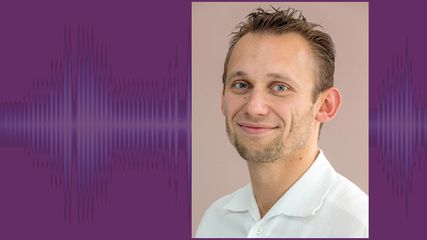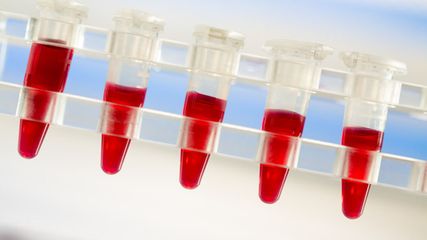
3rd International Lung Cancer Summit (ILCS) – interactive hybrid event in Geneva
Our interview partners:
Prof. Dr. Solange Peters, PhD
Professor of Medical Oncology
University Hospital of Lausanne
E-mail: solange.peters@chuv.ch
Dr. Alfredo Addeo
Consultant Medical Oncologist
University Hospital of Geneva
E-mail: alfredo.addeo@hcuge.ch
The interview was conducted by
Mehrpouya Mobin, PhD
The International Lung Cancer Summit constitutes an excellent platform for discussing the latest data on thoracic malignancies with renowned experts from allover the world. The 3rd edition of the ILCS will be an interactive hybrid meeting taking place on October 13th at University Hospital Geneva.
Following the great success of the virtual ILCS 2020 the chairs Solange Peters, MD, PhD, Professor of Medical Oncology at the University Hospital of Lausanne, and Alfredo Addeo, MD, consultant medical oncologist at the University Hospital of Geneva, look forward to welcoming health care professionals to the 3rd edition of this interactive hybrid meeting. Similar to recent years, the ILCS will showcase latest discoveries and advances performed towards the treatment of lung cancer.
This year’s conference will cover a wide range of topics in lung cancer including immunotherapy and targeted therapy in non small cell lung cancer, challenges in the treatment of small cell lung cancer, biopsy testing and the management of immune-related adverse events. Local and international speakers from the USA, Spain, Ireland, Italy, South Africa, India and Switzerland will guide through the individual topics and be available for questions and discussions. Seize the opportunity and join the meeting in person in Geneva or online! Register for the Lung Cancer Summit 2021 at: www.lungcancersummit.org.
We talked to Solange Peters and Alfredo Addeo about the ILCS and what to expect.
Could you briefly describe the ILCS?
S. Peters: The ILCS offers a platform to exchange about lung cancer, the knowledge we have and the accumulating data. It is a very comprehensive conference with a multidisciplinary approach, reaching renowned specialists and making them get together in order to describe the results we are exposed to in the field of thoracic malignancies. The approach is quite unique, as it allows access to many people, (health care) practitioners, oncologists, radio-oncologists and surgeons. Additionally, the atmosphere at the ILCS is really different: The idea is not to repeat what international congresses do. We need to somehow digest all the data presented there in order to bring them directly to the patients and to find some consensus. In a multidisciplinary approach, we need to find a way to make this data accessible for the practice, wherever you are, and for specialists from all fields, including the nurses. And very important here too: This meeting is organised by two centres, which have learnt to work together very closely: the Centre hospitalier universitaire vaudois (CHUV) and the Hôpitaux universitaires de Genève(HUG).
A. Addeo: The ILCS is a meeting aiming to all stakeholders that have an interest in thoracic malignancies. It intends to gather people from different countries and different disciplines, to discuss the difficulties we face every day, and also to talk about the patients that do not necessarily fit in any trial. Every one of us has such patients, where we are not sure what to do and how to treat them. And it is important to discuss about these cases in a friendly, relaxed atmosphere, where everybody feels absolutely comfortable to ask questions. This is what I think is the plus of attending this conference.
Who is the target audience of your conference?
S. Peters: The target audience of the ILCS is not defined strictly. It is open to any health care professional (HCP) and beyond who is interested in getting to know how to treat lung cancer and mesothelioma today. Of course, we try to focus on medical oncologists and surgeons, but also general family physicians, nurses and patient advocates are gladly invited. We are happy to get the knowledge about thoracic malignancies seen and sorted out by a group of specialists in order to make it useable and practice changing for the daily routine practice. In general, all people who can be interested in that field are welcome.
Why should HCPs participate in this event?
A. Addeo: The uniqueness of the ILCS lies in several aspects. To begin with, we have the opportunity to have an incredible faculty and people coming from different countries, with different backgrounds, who will certainly bring their own experiences. The second aspect is the friendly atmosphere due to the experts with that remarkable knowledge in their fields who are all so humble that you really feel you can ask them any question without any regret or fear. The third aspect is that we definitely need to digest all this information which we see on a weekly, if not daily basis. It might be difficult to interpret these data, to understand them, and to translate all that we have seen into our daily practice.
Das könnte Sie auch interessieren:
Highlights zu Lymphomen
Assoc.Prof. Dr. Thomas Melchardt, PhD zu diesjährigen Highlights des ASCO und EHA im Bereich der Lymphome, darunter die Ergebnisse der Studien SHINE und ECHELON-1
ASH 2020 – Highlights zu den aggressiven Lymphomen
Highlight-Themen der virtuellen ASH-Jahrestagung im Dezember 2020 waren an erster Stelle die Immunonkologika in all ihren Variationen, aber auch Beispiele für innovative Sequenztherapien ...
Aktualisierte Ergebnisse für Blinatumomab bei neu diagnostizierten Patienten
Die Ergebnisse der D-ALBA-Studie bestätigen die Chemotherapie-freie Induktions- und Konsolidierungsstrategie bei erwachsenen Patienten mit Ph+ ALL. Mit einer 3-jährigen ...


